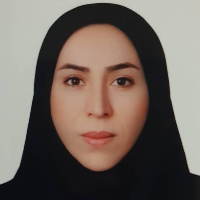The Effects of Filial Therapy on the Mother-Child Interaction and Behavioral Problems of Children With Intellectual Disability
Intellectual Disability (ID) is among the most frequent neurodevelopmental disorders and the common cause of children’s referral to psychologists and healthcare professionals. The birth and presence of a child with ID could considerably affect the family. A child with ID may threaten all family members’ wellbeing and mental health. Adding to their behavioral problems, it seems that numerous children with ID also experience problems concerning interacting with their parents, siblings, and peers. Children with IDs develop a poor relationship with their mothers. Besides, they encounter various behavioral problems and poor social relationships; accordingly, one of the methods to improve their conditions could be applying filial therapy. The present study aimed to investigate the effects of filial family therapy on the mother–child interactions and behavioral problems of children with ID.
This was a quasi–experimental study with a pretest–posttest and a control group design. The study participants included 24 mothers of children with ID who were selected from elementary schools in the 2018–2019 academic year in Ahvaz City, Iran. The study subjects were selected by random sampling method. The study subjects were randomly divided into the experimental and control groups (n=12 mothers/group). The inclusion criteria of the study for the mothers were an age range of 31 to 43 years (minimum age of mothers was 31 years); the presence of ID in the child; an Intelligence Quotient (IQ) of 55 to 70 for the child; the child’s attendance in public primary schools; motherschr('39') desire to participate in the research, and living with their spouses and children. The excluding criteria for the mothers included discontinuing cooperation with the study; their non–simultaneous participation in similar intervention programs, and absence from more than one intervention session. The experimental group participated in 12 filial therapy sessions (twice a week; each session lasted 60 minutes). This program was created by Abedi et al. (2018) based on the introduced model per the opinion of Landreth and Bratton (2005). However, the control group received no intervention. The study instruments used in the pretest and posttest phases were the Rutter Childrenchr('39')s Behavior Questionnaire (Rutter et al., 1970) and the Parent–Child Relationship Scale (Pianta, 1992). The one–way Analysis of Covariance (ANCOVA) was used in SPSS for analyzing the collected data.
The present study results suggested that filial therapy positively and significantly improved mother–child interactions and the aspects of conflict, closeness, dependence (p<0.001), and reduced behavioral problems in the studied children with ID (p<0.001). Based on ETA squared data, 59%, 65%, 63%, 64%, and 62% of the changes in conflict, closeness, dependence, mother–child interaction, and behavioral problems were respectively due to the participation of experimental group subjects in the filial therapy program.
The present study results revealed that providing filial therapy could effectively improve mother–child interaction and reduce behavioral problems in children with ID. Thus, it is recommended that filial therapy for the mothers of children with IDs receives serious attention.
- حق عضویت دریافتی صرف حمایت از نشریات عضو و نگهداری، تکمیل و توسعه مگیران میشود.
- پرداخت حق اشتراک و دانلود مقالات اجازه بازنشر آن در سایر رسانههای چاپی و دیجیتال را به کاربر نمیدهد.


